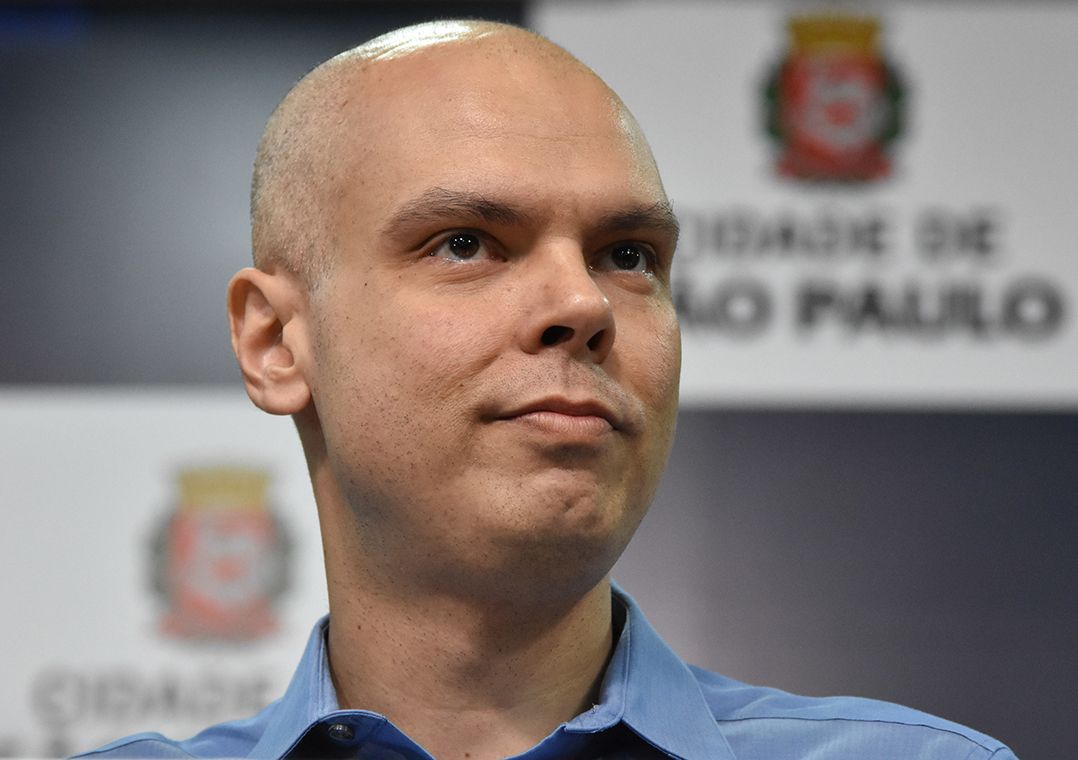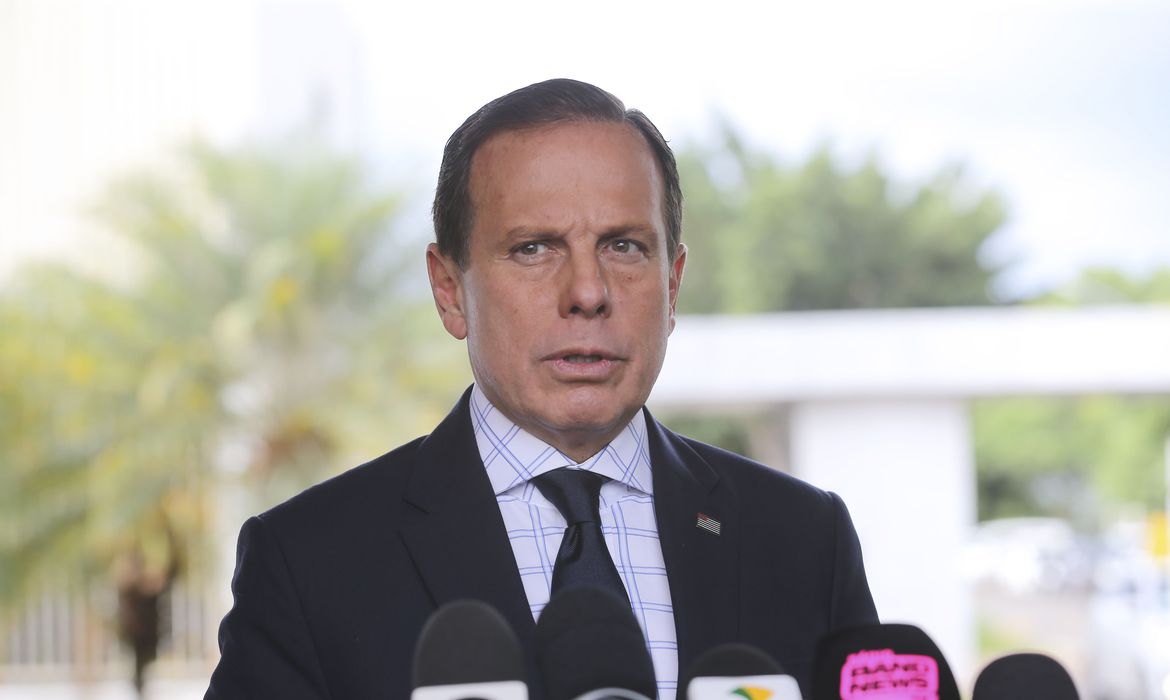SÃO PAULO, BRAZIL – The São Paulo City Hall passed in an extraordinary virtual session on Monday, May 18th, a bill allowing the anticipation of municipal holidays in the city of São Paulo by means of a decree from the Executive Branch during the novel coronavirus pandemic. The bill was approved by 37 votes in favor, 14 against, and one abstention.

The bill submitted by Mayor Bruno Covas is aimed at increasing social isolation through a “bridge holiday” this week. Covas said that the extended holiday will run between Wednesday, May 20th and Sunday, May 25th. To this end, the Corpus Christi (June 11th) and Black Awareness (November 20th) holidays will be brought forward to next Wednesday and Thursday. On Friday, an optional point will be declared in the city.
“We would have a period on Wednesday, Thursday, Friday, Saturday and Sunday where we could reach the rates we reached yesterday, Sunday, when we had 56 percent social isolation here in the city,” said Bruno Covas, in a press conference before the bill was passed.
To get the proposal approved with urgency, the government leadership in the Chamber adopted a strategy known as “jabuti=tortoise”. A substitution was proposed in a bill on another issue, which was already in progress.
As a result, the city council passed PL 424/2018, which deals with incentives for hiring women who are members of the “Tem Saída” (There’s a Way Out) Program, which offers employment to women who are victims of domestic violence.
The project establishes that five percent of job vacancies for members of the program (as long as the required qualifications exist) are ensured in contracts signed by the city hall for the provision of public services. The substitution included an article in the bill that authorizes the “Executive Branch to anticipate a municipal holiday, by decree, during the current public health emergency of international significance due to coronavirus”.
State holiday
Governor João Doria also announced on Monday that he will submit a bill to the São Paulo Legislative Assembly (ALESP) to bring forward the July 9th state holiday (Day of the Constitutionalist Revolution) to next Monday, May 25th.

The creation of an extended holiday is an attempt to improve the state’s rate of social isolation while a potential lockdown is still being assessed by the government.
According to the state government, a recommendation will be made for Greater São Paulo city halls to bring forward municipal holidays to May 26th and 27th.
“We will recommend that mayors of other municipalities in the metropolitan region, and in the interior of the state of São Paulo, should also assess with their city halls the anticipated municipal holidays for the days following those holidays, that is, May 26th and 27th, Wednesday and Thursday next week,” Doria said.
“It has become clear that over the past 56 days, over weekends and holidays, we have experienced higher rates of isolation and this has contributed to the control of the pandemic. Therefore, through this decision, we will have a longer period of holidays, and with that we hope that we may see similar rates to other holidays and weekends,” added the governor.
The anticipation of holidays had already been mentioned by Mayor Bruno Covas over the weekend as a strategy to increase the social isolation rate, while a potential lockdown of the city is being drafted by the government.
“São Paulo needs to slow down even further for a few days to slow down the rate of contagion again and save lives. While we must prepare ourselves for this gigantic and unprecedented task, we must be creative and use all available tools”.
End of extended rotation
The traditional car rotation was back on Monday, May 18th, in the city of São Paulo. According to the Mayor, the extended and more restrictive rotation, which came into force on Monday, May 11th, did not produce the expected effect on the capital’s social isolation rates.
“It makes no sense to demand this supernatural effort from people if, from a practical standpoint, the only reason why the (extended) rotation was implemented, which is to increase social isolation, was not accomplished. We are still below 50 percent,” Covas said.
With the new decree, rotation once again restricts the traffic of vehicles according to the end number of license plates and the day of the week, only in the extended downtown and at rush hour: from 7 AM to 10 AM and then from 5 PM to 8 PM, as before:
- Monday: end plate numbers 1 and 2
- Tuesday: end plate numbers 3 and 4
- Wednesday: end plate numbers 5 and 6
- Thursday: end plate numbers 7 and 8
- Friday: end plate numbers 9 and 0
Last week, in an attempt to discourage the movement of people, São Paulo City Hall tightened the rules for car traffic in the city.
By determination, vehicles with even end number plates could only run on even days of the week, and vehicles with odd end numbers, on odd days. The measure was valid throughout the city, 24 hours a day, including Saturdays and Sundays.
However, the rates remain similar to those previously recorded, when the government was already concerned about the population’s disregard for quarantine.
On Tuesday, May 6th, the rate recorded was 47 percent, as on Tuesday, May 12th. On Friday, May 14th, the figure in the capital decreased in relation to the preceding day and reached 48 percent.
“There was only a slight improvement in the only index we have. The only index available to measure isolation, based on cell phone location in relation to signal antennas. Comparing Friday, May 8th with Friday, May 15th, we’ve gone up only two percentage points, from 46 to 48 percent isolation, remaining below 50 percent,” said the Mayor on Sunday.
The rotation was the city’s second strategy to try to increase social isolation rates. Days earlier, the city’s management even blocked major roads in the city. The measure was heavily criticized because it affected essential services professionals, particularly in the health area. This was subsequently reviewed.
Fines
Also according to Covas, the fines imposed during the seven days the restrictive rotation remained in force will be upheld. “Whoever was fined, was fined,” he said.
However, Covas said that the resources requested for release during this period will be assessed and deadlines will not be started until after the end of the pandemic.
Source: G1

